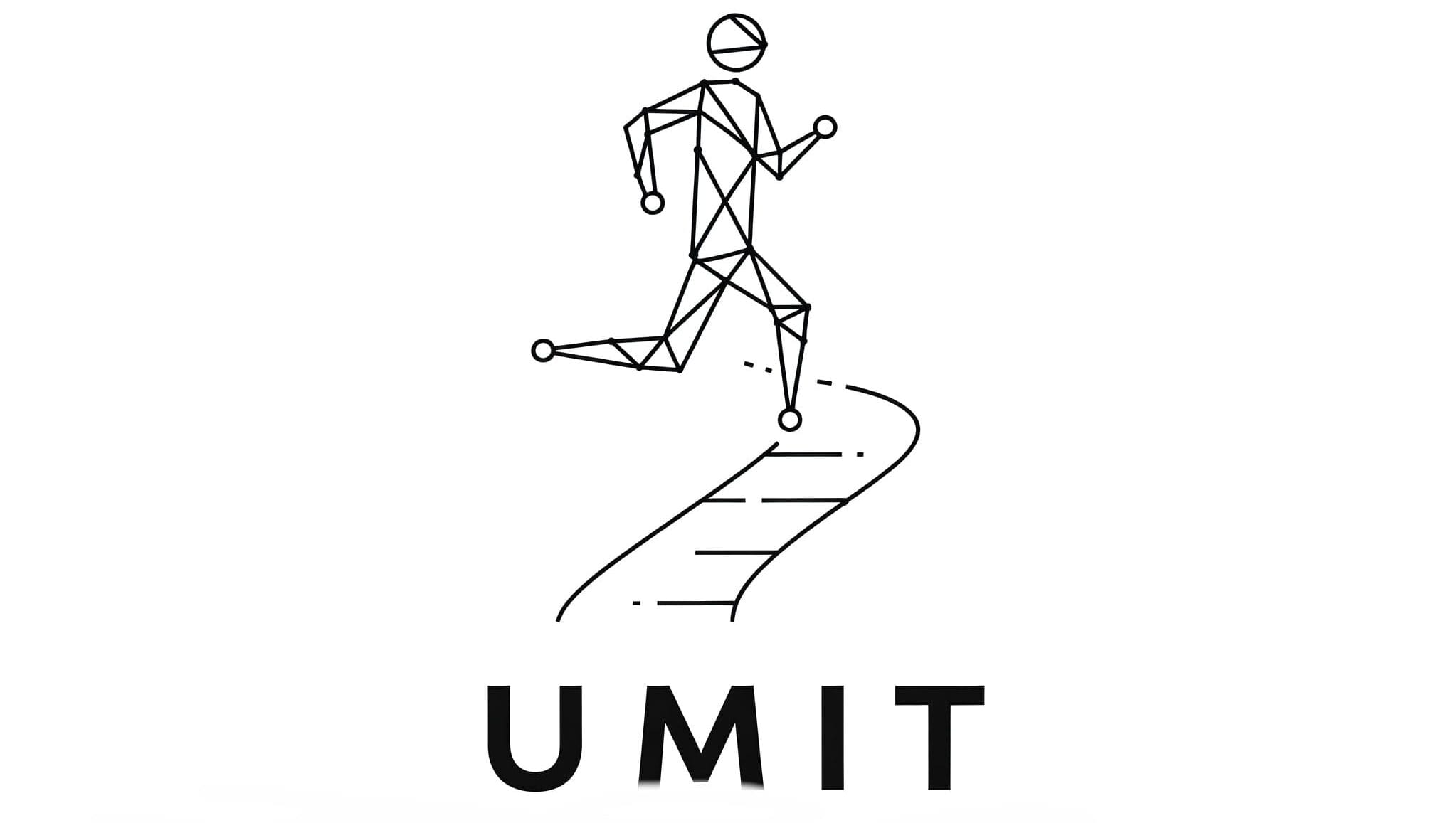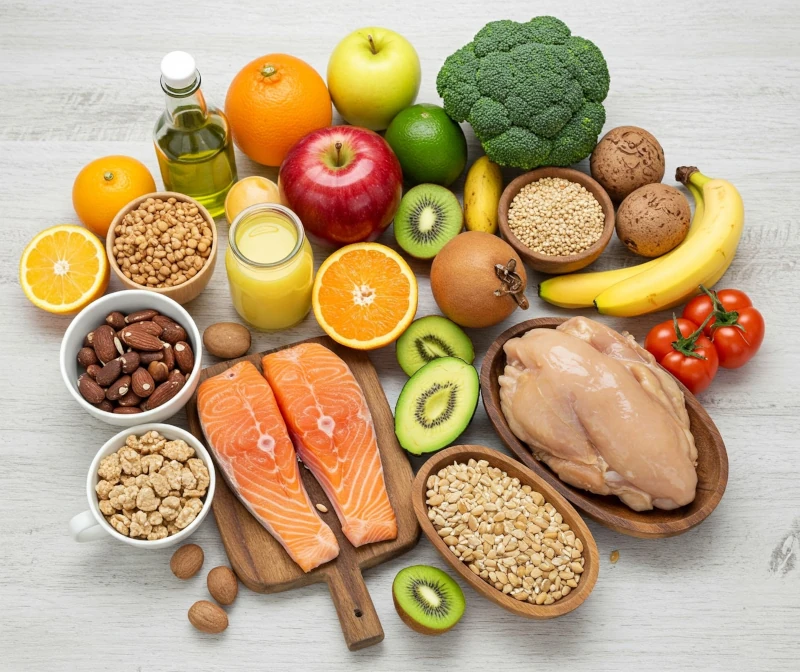Hey runners! You meticulously plan your training schedules, invest in the right gear, and push your bodies to incredible limits. But are you overlooking a critical component of your performance and recovery: your diet?
What you eat can either help your body adapt and get stronger or actively work against you by promoting inflammation. While a little bit of inflammation is a natural response to the stress of running, chronic inflammation can sabotage your performance, slow down recovery, increase your injury risk, and even impact your long-term health.
Long-distance runners are particularly susceptible because the high volume and intensity of training naturally create an inflammatory environment. Understanding how your food choices influence this delicate balance is crucial.
This post dives deep into the foods and drinks most likely to cause inflammation for runners, explaining why they’re problematic and outlining the consequences. More importantly, we’ll equip you with the knowledge to build an anti-inflammatory diet that supports your training, speeds up recovery, and helps you perform at your best.
Understanding Inflammation: The Runner’s Double-Edged Sword
Inflammation is your body’s natural defense mechanism against injury, toxins, and infection. When you finish a tough run, the microscopic damage to your muscles triggers an acute inflammatory response. This is actually a good thing – it’s part of the repair and adaptation process that makes you stronger.
The problem arises when inflammation becomes chronic. This low-grade, persistent inflammation doesn’t help you adapt; instead, it can lead to a host of problems like:
- Arthritis
- Heart disease
- Pain flare-ups
- Poor digestive health
- High blood pressure
- Reduced athletic performance
For long-distance runners, managing inflammation through diet isn’t just about general health; it’s about optimizing performance and longevity in the sport.
The Dietary Culprits: Foods That Fuel Inflammation
Let’s identify the common offenders lurking in many runners’ diets:
1. Refined Carbohydrates:
- Examples: White bread, white pasta, pastries, waffles, processed breakfast cereals, foods made with white flour.
- Why they’re inflammatory: These foods are stripped of fiber, leading to rapid digestion and absorption, similar to added sugars. This quick spike in blood sugar can trigger an inflammatory response. They can also promote the growth of “bad” gut bacteria. Furthermore, they might contain hidden trans fats or saturated fats.
- Impact on Runners: Can hinder post-run recovery and contribute to chronic disease development over time.
2. Added Sugars:
- Examples: Candy, cakes, cookies, sugary drinks (sodas, many sports drinks, sweetened teas), processed foods with hidden sugars (check labels!).
- Why they’re inflammatory: Highly processed and easily absorbed, added sugars significantly increase markers of inflammation like C-Reactive Protein (CRP) and pro-inflammatory cytokines. They also promote oxidation, which damages cells. Excessive intake can lead to metabolic disturbances.
- Impact on Runners: Can cause fatigue and lethargy, negatively impacting performance. While excessive sugar at rest promotes inflammation and weight gain, note the nuance: sugar during prolonged endurance exercise is a useful energy source, and simple sugars immediately post-exercise can help replenish glycogen stores. The key is context and quantity.
3. Processed Meats:
- Examples: Bacon, deli meats (like salami, ham), hot dogs, sausages.
- Why they’re inflammatory: Often high in saturated fats and preservatives like nitrates, which can increase inflammation. Cooking them at high temperatures forms Advanced Glycation End-products (AGEs), compounds linked to inflammation and potentially carcinogenic effects. Studies have linked them to higher inflammatory markers, especially in women.
- Impact on Runners: Can contribute to fatigue, lethargy, and potentially increase the risk of injury and chronic diseases. Some evidence suggests animal-based meals heavy in processed meats might thicken blood, slowing oxygen and nutrient delivery to muscles.
4. Fried Foods:
- Examples: French fries, fried chicken, donuts, anything deep-fried.
- Why they’re inflammatory: Typically loaded with unhealthy trans fats and other fats that drive inflammation. Like processed meats, frying creates AGEs. Often, fried foods are coated in refined flour (refined carbs), creating an inflammatory “double whammy.”
- Impact on Runners: Can negatively affect cardiovascular health and athletic performance. The high saturated fat content can worsen inflammation and muscle soreness, making recovery more difficult.
5. Excessive Red Meat:
- Examples: Steak, hamburgers, fatty cuts of beef, pork, and lamb.
- Why it’s inflammatory (in excess): Primarily due to high saturated fat content, which can promote inflammation. It may also lead to the formation of pro-inflammatory compounds. Research on marathon runners indicated that general meat intake, especially fatty meat, increased exercise-induced muscle damage and soreness.
- Impact on Runners: Excessive consumption can increase inflammation and muscle soreness, potentially hindering muscle recovery.
Inflammatory Drinks: Quenching Thirst or Igniting Problems?
It’s not just food; what you drink matters too.
1. Alcohol:
- Examples: Beer, wine, distilled spirits.
- Why it’s inflammatory: Chronic consumption can increase intestinal permeability (“leaky gut”), allowing bacterial toxins into the bloodstream, raising inflammatory markers. It can elevate pro-inflammatory cytokines (like IL-6 and TNF-α) and disrupt the body’s inflammatory balance.
- Impact on Runners: Significantly impairs endurance performance, hinders post-exercise muscle recovery and protein synthesis, impairs glycogen replenishment (especially with low carb intake), delays rehydration by interfering with electrolyte balance, increases injury risk due to impaired coordination, weakens the immune system, and can lead to muscle cramps and increased lactic acid buildup.
2. Sugary Drinks:
- Examples: Sodas, bottled/canned sweet teas, sugary sports drinks, fancy coffee beverages, energy drinks.
- Why they’re inflammatory: Primarily due to their high load of added sugars, triggering the same inflammatory pathways discussed earlier.
- Impact on Runners: Can lead to rapid blood sugar spikes and crashes, resulting in fatigue and performance decline. Be aware that some energy drinks contain high levels of High-Fructose Corn Syrup or other high-FODMAP ingredients, potentially causing gastrointestinal distress in sensitive individuals.
3. High-Sugar Sports Drinks:
- Examples: Many commercially available sports drinks.
- Why they’re inflammatory: While providing electrolytes, many contain substantial amounts of added sugar, contributing to inflammation like other sugary drinks.
- Impact on Runners: Can contribute to overall inflammation load. May cause GI issues for some. Consider diluting them with water or choosing lower-sugar electrolyte options.
The Worst Offenders: Top Inflammatory Triggers for Runners
Based on the research, the most consistently potent inflammatory culprits appear to be:
- Alcohol: Due to its wide-ranging negative effects on inflammation, recovery, hydration, and performance.
- Fried Foods: The combination of trans fats, unhealthy oils, and AGEs makes them significant inflammatory triggers.
- Processed Meats: Consistently linked to increased inflammation and other health risks due to high saturated fat, preservatives, and AGEs.
- Foods High in Added Sugars: Their direct impact on inflammatory markers and metabolic processes is well-documented.
- Foods Containing Trans Fats: These should be avoided entirely due to their strong inflammatory effects.
The common threads? Unhealthy fats (trans and saturated), high levels of processing, and excessive sugar content. This strongly suggests that focusing on unprocessed, whole foods, naturally low in sugar and unhealthy fats, is the cornerstone strategy for minimizing diet-induced inflammation.
The Ripple Effect: How Inflammation Sabotages Your Running
Chronic, diet-driven inflammation doesn’t just exist in a vacuum; it directly impacts your running life:
- Performance: Leads to fatigue and lethargy, making training feel harder and hurting race-day performance. Alcohol specifically impairs energy metabolism and cardiovascular efficiency. Sugar crashes also contribute to performance dips.
- Recovery: Delays essential post-exercise muscle repair and adaptation. Alcohol blocks muscle protein synthesis and glycogen replenishment. Fried and fatty foods can make muscle recovery more difficult. Poor glycogen replenishment due to bad dietary choices can increase cortisol, leading to muscle breakdown. Impaired recovery increases the risk of overtraining and injury.
- Overall Health & Injury Risk: Increases the risk of chronic diseases like arthritis and heart disease. It can cause the immune system to attack healthy cells. Alcohol weakens immunity. Inflammatory foods can contribute to joint pain and increase susceptibility to injuries, potentially lengthening recovery time from sports-related incidents.
Fighting Fire with Food: Your Anti-Inflammatory Arsenal
The good news? You can actively combat inflammation by choosing the right foods and drinks. Build your diet around these powerhouses:
- Fatty Fish: Rich in omega-3 fatty acids (EPA & DHA) with potent anti-inflammatory properties. Examples: Salmon, mackerel, sardines, tuna, herring, anchovies. Also provides protein for muscle recovery.
- Colorful Vegetables: Packed with phytochemicals and carotenoids known to reduce inflammation. Examples: Kale, spinach, broccoli, sweet potatoes, beets, bell peppers. Also rich in vitamins and antioxidants.
- Fruits (Especially Berries & Tart Cherries): Loaded with disease-fighting nutrients.
- Berries (Blueberries, Strawberries, Raspberries, Blackberries): High in antioxidants, Vitamin C, and anthocyanins shown to fight inflammation.
- Citrus Fruits: Packed with Vitamin C, an inflammation-reducing antioxidant.
- Tart Cherries & Juice: Contain anthocyanins that may inhibit inflammation and help prevent muscle damage.
- Nuts & Seeds: Associated with lower inflammatory biomarkers. Rich in unsaturated fatty acids, vitamins, antioxidants, and omega-3s (especially flaxseeds, chia seeds, walnuts). Provide healthy fats and fiber.
- Healthy Fats: Oils like extra virgin olive oil, avocado oil, walnut oil, and flaxseed oil help reduce inflammatory markers. Olive oil is rich in polyphenols. Avocado and its oil are good sources of monounsaturated fats and Vitamin E.
- Turmeric: Contains curcumin, a powerful antioxidant and anti-inflammatory compound. May help reduce pain and swelling. Consuming it with black pepper enhances absorption.
- Ginger: Used for millennia as an anti-inflammatory. Contains gingerols that help manage inflammation. Can combat inflammation in endurance athletes. Add to juices, stir-fries, tea, smoothies.
- Water: Essential for hydration, supporting overall cellular function, and helping prevent lactic acid buildup which contributes to muscle fatigue and cramps. Don’t underestimate fundamental hydration!
- Herbal Teas: Green tea contains catechins that suppress inflammatory protein responses. Teas made with therapeutic-grade essential oils may protect against some chronic diseases linked to inflammation. Ginger and turmeric teas offer the benefits of those spices.
- Bone Broth: A traditional broth rich in amino acids (glycine, proline, arginine) supporting gut, skin, and joint health. Contains collagen and key minerals. May help reduce inflammation.
- Coffee (in moderation): Researchers believe antioxidants in coffee have protective effects against inflammation. Polyphenols in coffee may help shield the body. (Note: Avoid excessive caffeine pre-run if sensitive).
Decoding Labels: Avoiding Hidden Inflammatory Ingredients
Highly processed foods are often loaded with ingredients that promote inflammation. Become a label detective and watch out for:
- Trans Fats: Found in margarines, microwave popcorn, refrigerated doughs, coffee creamers, and anything listing “partially hydrogenated oils.” Avoid completely.
- Artificial Sweeteners: Can be inflammatory for some individuals.
- Food Additives & Artificial Colors: May contribute to inflammation.
- Excess Sodium: Found in canned soups, chips, salted nuts, processed snacks. Can lead to water retention and high blood pressure, hindering performance.
- Hidden Sugars: Can be listed under more than 50 different names! (e.g., high-fructose corn syrup, dextrose, sucrose, maltose, agave nectar, etc.)
- Processed Vegetable Oils (High in Omega-6): Such as soybean oil, corn oil, cottonseed oil, sunflower oil when consumed in excess relative to omega-3s, can promote inflammation.
The strategy? Minimize your intake of heavily processed foods and prioritize whole, unprocessed ingredients.
Putting It All Together: Practical Anti-Inflammatory Diet Strategies for Runners
Managing inflammation through diet is a holistic approach. Here are key strategies:
- Emphasize a Whole-Food Based Diet: Focus on minimally processed foods: plenty of colorful fruits and vegetables, lean proteins, and whole grains.
- Prioritize Anti-Inflammatory Foods: Actively include the beneficial foods and drinks listed previously daily.
- Limit or Avoid Inflammatory Items: Reduce your intake of refined carbs, added sugars, processed meats, fried foods, excessive red meat, alcohol, and sugary drinks.
- Mind Your Fats: Swap pro-inflammatory fats (from fried/fatty foods, processed meats, excessive vegetable oils) for anti-inflammatory fats (olive oil, avocado, fish, flax, nuts, seeds).
- Hydrate Adequately: Drink plenty of water throughout the day.
- Consider Nutrient Timing: Be mindful of carbohydrate intake around runs. While refined carbs should generally be limited, easily digestible carbs can be beneficial immediately before and during long endurance activities. Post-exercise, a combination of carbs and protein is crucial for recovery.
- Know Your Sensitivities: Runners with conditions like IBS/IBD may need to avoid additional trigger foods (e.g., dairy, legumes, high-fiber foods, gluten for some). Working with a registered dietitian can help identify personal triggers.
- Balance Your Meals: Combine carbohydrates, protein, and healthy fats at meals to support energy needs, muscle repair, and reduce inflammation.
- Practice Moderation (80/20 Rule): Aim for a generally healthy eating pattern focused on unprocessed, nutrient-dense foods about 80% of the time. Allow for occasional indulgences.
- Adopt a “Food First” Approach: Prioritize getting nutrients from whole foods rather than relying heavily on anti-inflammatory supplements, as some research suggests supplements might even backfire.
- Practice Your Race Nutrition: Experiment with fueling strategies during training runs to figure out what works best for your body on race day.
Conclusion: Run Stronger, Recover Faster
Your diet is a powerful tool. For long-distance runners, choosing foods that fight inflammation instead of fuel it is essential for improving performance, speeding up recovery, reducing injury risk, and supporting long-term health.
By limiting inflammatory culprits like processed foods, added sugars, unhealthy fats, and alcohol, while actively embracing anti-inflammatory heroes like fatty fish, colorful produce, nuts, seeds, and healthy fats, you give your body the best chance to thrive.
Treat your nutrition as seriously as you treat your training plan – it’s a vital component of your running journey. Remember, individual needs vary, so consider consulting with a registered dietitian or sports nutritionist for personalized advice tailored to your specific goals and requirements.
Now go fuel smart and run strong!

About the Author
Lost Pace is an ultramarathon runner, shoe-tester and the founder of umit.net. Based year-round in Türkiye’s rugged Kaçkar Mountains, he has logged 10,000 + km of technical trail running and completed multiple 50 K–100 K ultras.
Blending mountain grit with data, Lost analyses power (CP 300 W), HRV and nutrition to craft evidence-backed training plans. He has co-written 260 + long-form guides on footwear science, recovery and endurance nutrition, and is a regular beta-tester of AI-driven coaching tools.
When he isn’t chasing PRs or testing midsoles, you’ll find him sharing peer-reviewed research in plain English to help runners train smarter, stay healthier and finish stronger.
Ultrarunner · Data geek · Vegan athlete

